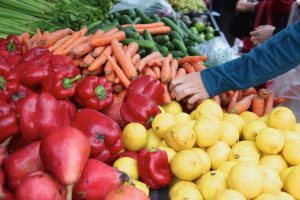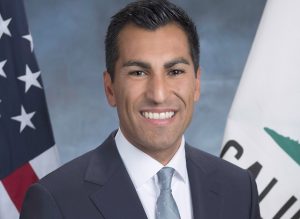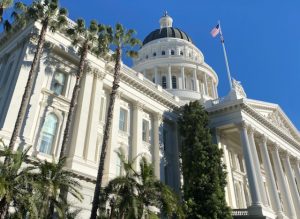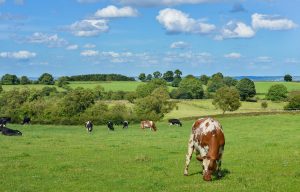California Mayors Newsom and Dellums Challenge Nation’s Cities on Food and Farming
July 14, 2009 Michael R. DimockIn Oakland, California this past week, the political momentum seemed to clearly and perhaps irrevocably shift to formation of a sustainable food system for the nation. Hailing from three western states and Washington DC, 120 leading activists (from farms, ranches, philanthropy, businesses and NGOs), 15 USDA officials, and two important northern California mayors focused on the issues of food security, foodsheds , and public-private partnerships to accelerate change. The take home message from this groundbreaking summit is that an essential set of sustainable food concepts has pierced the intellectual membrane that shapes the American political scene. Perhaps it is only a matter of time until this welcome and healthy infection takes over the body politic.
The increasingly coordinated campaign to inject the current mainstream food system with good-food principles has slowly gained momentum. For three decades now organic and sustainable food producers have been preparing the ground by offering food that is place-based, healthier for humans and ecosystems, and more delicious. For about ten years, visionaries and writers like Carlo Petrini, Michael Pollan, Eric Schlosser, and Alice Waters have been providing the intellectual and cultural underpinnings for the good food movement. More recently, with local activists leading the way, a few cities, counties and states (notably New York City, Seattle, Woodbury County in Iowa, Pennsylvania, and Illinois) have been working to codify in ordinance and law a glide path for development of a better food system. Most recently, Michele Obama’s garden at the White House, Tom Vilsack's at the USDA, and Maria Shriver's in Sacramento sent a message that the top tiers of American political leadership are receptive to the good food movement. The stage is set for an explosion of comprehensive reform.
In Oakland, there were three concrete indications that a new level of grass tops political leadership has emerged to meet the grass roots. First, the Agricultural Marketing Service of USDA provided the bulk of the funding for a summit meeting entitled “Developing Sustainable Foodsheds to Enhance Food Access and Nutrition.” The senior USDA official attending the summit, Deputy Under Secretary, Ann Wright, head of marketing and regulatory programs said the term “sustainable foodshed” is not exactly part of the everyday lexicon at USDA. Yet, she and 15 officials from the marketing, food and nutrition, rural development, and regulatory divisions came anyway to engage good food activists in a substantive dialog so that summit participants can offer recommendations to policy makers on how foodsheds and food access may be improved. Clearly, today’s USDA is moving toward a new food system, not seeking to defend the old one from much needed evolution.
Second, Oakland Mayor, Ron Dellums, who spent 28 years in the US House of Representatives, 21 years on the Armed Services Committee, which he chaired for a time, addressed the Summit. He said that food security is national security, that military planners now see food as a potential primary cause of war. He emphasized that food links the global to the local and is therefore fundamental to the future of cities. He stated that the good food movement could count on him to assist with any effort by mayors to deliver the message to Congress that food security for cities must be enhanced. As if to underline his point, on the same day, the G8 issued its statement on food security in which they said, “food security is closely connected with economic growth and social progress as well as with political stability and peace.”
Third, San Francisco Mayor Gavin Newsom, the man who actually spawned the trend among political leaders with his Slow Food Nation garden in 2008, issued the most comprehensive food policy document yet produced by any politician in the nation. His Executive Directive on Healthy Sustainable Food for San Francisco is truly holistic, knitting the many elements required to create a functional foodshed that serves rich and poor. It contains 11 guiding principles and 15 actions with clear deadlines. Other cities have already embraced some of the items in Newsom’s directive, but what is most impressive is that he calls out the need to prioritize healthy food access, ecological health, and the interdependence of rural and urban communities in a period of economic crisis. He sees the link between sustainable food and the nation’s future economic growth.
Newsom orders City departments dedicated to nutrition programs to remain sufficiently staffed despite budget cuts to serve those needing better nutrition. He directs the City to advocate for federal and state policies that will bring about a sustainable food system. Specifically, he cites policies that conserve the region’s prime agricultural land and regional food and agriculture businesses — outside the city’s political boundary. Finally, and perhaps most importantly, he calls for good food principles to be implanted within the City code and general plan in order to ensure that development of a sustainable foodshed and good food access will continue after his administration.
With the linkage of food security and national security and San Francisco’s groundbreaking directive, the bar for healthy sustainable food policy has been reset for all other policy makers in the nation. We applaud both men for their vision and particularly Mayor Newsom for his bold action.



